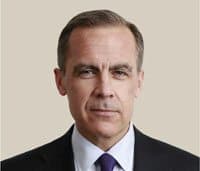 Yesterday the Financial Policy Committee (FCP) of the Bank of England relaxed bank capital requirements in a proactive move designed to stave off a looming, Brexit driven slowdown.
Yesterday the Financial Policy Committee (FCP) of the Bank of England relaxed bank capital requirements in a proactive move designed to stave off a looming, Brexit driven slowdown.
Bank of England Governor Mark Carney stated;
“The UK has entered a period of uncertainty and significant economic adjustment. The efforts of the Bank of England will not be able fully and immediately to offset the market and economic volatility that can be expected while this adjustment proceeds. More fundamentally, the future potential of this economy and its implications for jobs, real wages and wealth are not the gifts of the Bank of England, but will be driven by major decisions made by others in the public and private sectors.”
 Carney outlined a four-point plan the B of E would deliver to mitigate the EU Referendum shock;
Carney outlined a four-point plan the B of E would deliver to mitigate the EU Referendum shock;
- Identify clearly the risks to financial stability and be straight with the British people about them;
- build on series of measures taken over recent years that have increased the resilience of the financial system;
- Supplement this core strength with contingency measures implemented in the past few months to address immediate risks to financial stability; and
- Take action to support jobs and growth during a period of heightened
uncertainty.
 Louise Beaumont, Head of Public Affairs at GLI Finance called the FCP decision as indicative of concern that UK SME’s will not be able to access the capital needed to drive growth;
Louise Beaumont, Head of Public Affairs at GLI Finance called the FCP decision as indicative of concern that UK SME’s will not be able to access the capital needed to drive growth;
“Yesterday’s decision by the FPC clearly recognises that the ability for SMEs to access capital is likely to be significantly compromised as Brexit uncertainty hits financial markets and consumer confidence.
Beaumont also stated that past efforts designed to stimulate traditional banks into providing more effective credit have fallen short of intended goals;
“It is, however, important to remember that previous measures to stimulate lending by traditional banks have often failed to deliver the desired outcomes, and that it is imperative that the alternative finance industry also continues to support SMEs as it has done since the aftermath of the 2008 financial crisis.
Beaumont believes that platforms that can offer specialist products that are “best suited to SMEs’ particular needs have a crucial role to play not just in helping SMEs survive, but also supporting the inevitable growth opportunities that will emerge as they adjust to a new post-Brexit normal.”
Kevin Caley, founder and Chairman of P2P lender ThinCats, called Carney’s move the right decision;
“Mr Carney’s decision to reduce capital buffers for banks and free up £150billion is undoubtedly the right decision for the British economy. But it remains to be seen whether this will actually benefit SMEs. The onus is truly on banks to respond in the correct way, by reassuring businesses that they can access the funding they desperately need.
Caley also said that alternative finance providers will play a vital role in supporting the UK economy.
“The economy requires stimulus from the ground up and until high-street lenders recognise and act upon this, the alternative finance sector will continue to play a vital role in bridging the funding gap.”
It will take some time for the Brexit aftershocks to settle, in the meantime it is all hands on deck.

